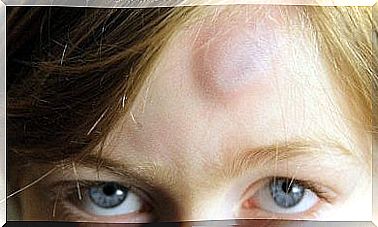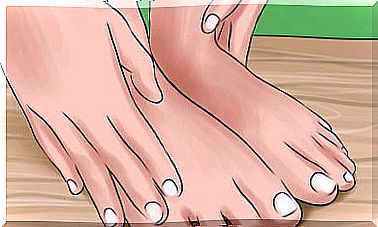Discover Strategies To Fight Obesity

What Strategies Can Help Combat Obesity? Obesity is a chronic disease characterized by an excessive accumulation of body fat.
Although it often begins in childhood and adolescence, it can occur at any age. It is a multifactorial disease, which can be caused by genetics or medical problems, but often also has to do with lifestyle.
The strategies to combat obesity can vary according to the needs of each patient. In general, however, it involves changes in eating habits and an increase in physical activity. In the following article we give you five recommendations.
Strategies to Fight Obesity
It is very likely that obese people will develop other health problems, including:
- heart disease
- diabetes
- high bloodpressure
- arthritis
These conditions, in turn, promote the progression of the condition and thus worsen the prognosis.
Fortunately, losing some weight is enough to improve or prevent obesity-related complications. Do you suffer from this condition? Then discover a range of strategies that can complement your treatment. So put them into practice!
1. Get regular exercise, one of the strategies to fight obesity

Regular exercise is an important part of treatment to fight obesity.
While it’s not easy to quit a sedentary lifestyle, starting with moderate exercise is beneficial for weight management. It also helps control the problems associated with this disease.
What you have to do
- In the beginning, you can exercise 150 minutes a week. However, as you gain stamina, you can do up to 300 or more minutes.
- You can choose from different types of training routines or sports activities. The important thing then is to be consistent and increase the intensity as your physical condition improves.
- Experts also recommend intensifying other forms of exercise. For example, you can use the stairs instead of the elevator or do your chores at a faster pace. If you have a dog, you can take longer walks than you did before.
2. Follow a healthy diet

Much of the success of obesity treatment depends on your diet. That is why it is important to reduce your calorie intake and adopt healthy eating habits. Despite this, you should avoid drastic and restrictive diets as they will not yield long-term results.
While they can help you lose weight in a short period of time, if you stop taking them, it is very likely that you will regain the pounds you lost. The best way to achieve a healthy and balanced weight is to follow a long-term and constant weight loss plan.
The type of diet may vary depending on your needs. The GP or nutritionist can take into account aspects such as:
- age
- degree of obesity
- underlying diseases
However, they usually recommend the following:
- First, reduce your total calorie intake. The normal amount is 1,200 to 1,500 calories for women and between 1,500 and 1,800 for men per day.
- Second, you should eat more foods that are nutritious and low in calories, such as:
- fruit
- vegetables
- whole grains
- legumes
- seeds
- Also consume more lean proteins, such as:
- chicken
- Turkey
- fish
- Also eat low-fat dairy products.
- In addition, make healthy snacks, such as:
- nuts
- yogurt
- seeds
- fruit
- Finally, limit your consumption of unhealthy foods, such as:
- food with sugar
- refined flours
- saturated fats
3. Change Your Behavior to Fight Obesity

In many cases, patients gain access to a behavior change program. The main goal of these types of programs is to change behaviors and attitudes that do not allow patients to maintain a healthy weight.
In this way, patients learn to understand that weight loss requires a permanent lifestyle change.
A psychologist is the expert who usually conducts behavior modification programs, also known as behavioral therapy. This is because this expert has the skills to help the patient understand the risks of his illness and the situations that lead him to eat poorly.
Therapy can take place individually or in groups. It is also sometimes hereditary, as the disease tends to affect several members of the same family. The plan includes strategies for coping with food anxiety, stressful situations, and other emotions associated with this illness.
Are you also fighting obesity? If so, apply all the strategies mentioned and fight for a healthier weight! Also, don’t forget to seek medical attention as other treatment options can be decisive in overcoming this dangerous condition.









